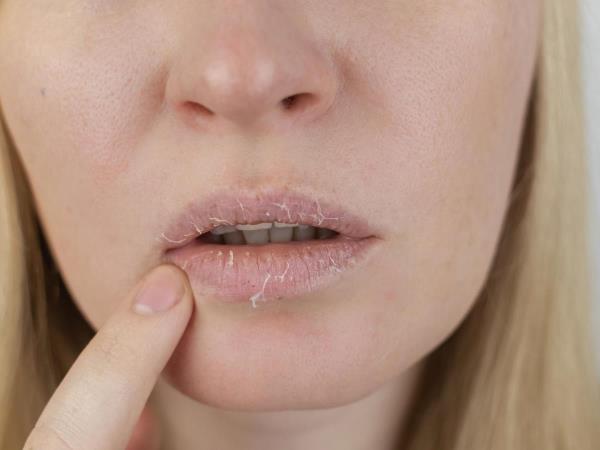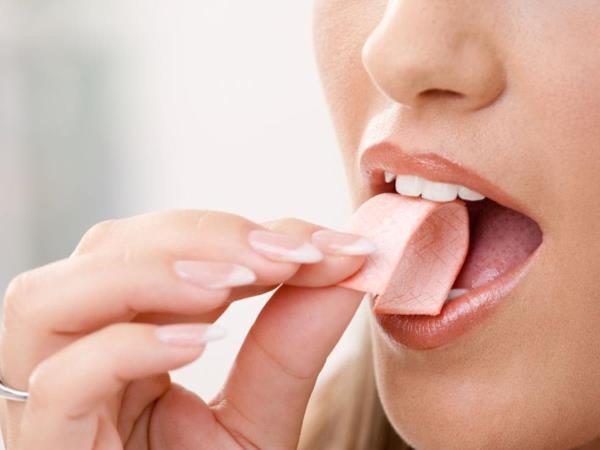Xerostomia (pronounced: ze-ro-sto-mi-a) is the technical term for dry mouth. It is a subjective feeling of insufficient saliva in the mouth. Hyposalivation means objectively measured decreased saliva secretion. This is not the same thing. A person can feel dry mouth, yet still have normal saliva levels in measurements, and vice versa. The criteria are clear. Normal unstimulated saliva secretion is approximately 0.3 to 0.4 ml per minute, while hyposalivation is usually confirmed when unstimulated saliva falls below 0.1 to 0.2 ml/min, and stimulated saliva falls below 0.5 to 0.7 ml/min.
Globally, the issue of dry mouth affects about 1 in 5 adults (around 22%), and is more common in older individuals. A meta-analysis in older people states that around 33% of individuals suffer from hyposalivation on average. This means that almost every third older person lives with significantly less saliva than is ideal for chewing, swallowing, and protecting teeth.
Dry Mouth as a Window to Overall Health
We do not appreciate saliva until it is absent. It is our natural protective coat: it neutralizes acids, removes food from teeth, provides minerals, and even antimicrobial substances.
When there is less saliva, the indicators quickly decline: more cavities, more fungal infections and sores, more issues with dentures, and bad breath.
And why do dry mouths occur? Most commonly, it is a combination of medications (antidepressants, antihistamines, blood pressure medications), dehydration, smoking, stress, and certain diseases (e.g., Sjogren's syndrome - an autoimmune disorder where the immune system attacks the salivary and tear glands, common in middle-aged women).
Newer antidepressants (e.g., citalopram, sertraline) have a reported frequency of dry mouth in 10% of cases. Dry mouth is also caused by antihistamines, antipsychotics, bronchodilators, some antihypertensives, opioids, and benzodiazepines. If you are taking such medications and notice persistent dry mouth, it is worth discussing with your doctor about changing the dose or switching medications.
Smoking can also be a serious cause... Diminished saliva production, often more acidic, leads to more issues. Studies on smokers show a typical decrease in salivary flow and lower pH compared to non-smokers.
Caffeine and alcohol are also problematic. Moderate coffee intake (up to 400 mg of caffeine per day, roughly 3 to 4 cups) does not dehydrate most people and actually contributes to hydration. Overindulging can worsen dry mouth. Alcohol, on the other hand, inhibits saliva secretion in larger quantities and alters its composition, so taking a sip before sleep is not a good plan for dry mouth.
The Connection between Thinking and Memory
In recent years, there has been significant research on the connection between oral health and cognitive function (thinking, memory, decision-making...). Studies in people with mild cognitive impairment (MCI - an intermediate stage between normal aging and dementia) report poorer oral function, including dry mouth, weaker tongue pressure, and decreased chewing ability. Larger analyses indicate that poorer oral health is associated with lower cognitive achievements, supporting the idea that the mouth-brain connection is a two-way street. As cognitive function declines, oral care also falters, and when mouths suffer, so do brain fitness.
Example from 2020: During the pandemic, we all wore masks. A large survey study (3,750 people) showed increased self-reported dry mouth and bad breath with prolonged mask wearing. On the other hand, microbiome research did not find significant harmful changes in oral microbiota due to masks, indicating that it is likely a perception issue and less liquid intake, rather than ruined mouths because of masks.
Recent studies have reported that better oral hygiene and chewing correlate with fewer cognitive issues. In older individuals, oral habits have even predicted better memory test results. This doesn't mean that brushing teeth cures dementia, but it does imply that oral hygiene is among the risk factors we can influence.
How Much to Drink
European Food Safety Authority (EFSA) guidelines recommend about 2.0 L of fluid/day for women and 2.5 L/day for men (including soups, tea, and similar). For most adults, this is a good target, especially in heat or during physical work. Coffee counts too, but don't overdo it. Water is still the queen.
Effective Homemade Solutions (and Why):
- Sip Water Throughout the Day.
Instead of two large glasses at once, take a 0.5 L bottle and refill it 4 to 5 times a day. Dehydration is one of the most common triggers of dry mouth (especially in older individuals), so this is the first step.
- Sugar-Free Chewing Gums (ideally with xylitol - a natural sugar alcohol that inhibits cavity-causing bacteria).
Chewing mechanically stimulates salivation. In older and chronically ill individuals with dry mouth, salivary flow measurably increases. Xylitol further reduces Streptococcus mutans (main cavity-causing bacteria). Just be cautious because xylitol is toxic to dogs, even deadly.
- Mild Homemade Mouthwash with Baking Soda and Salt.
Dissolve 1/4 teaspoon of baking soda and a pinch of salt in 2 dl of boiled or bottled water. This mixture doesn't sting, neutralizes acids, and is gentle on the dry mucosa. Use it after eating or before bedtime. This is also recommended by dental guidelines for sensitive mucosa.
- Moist Air in the Bedroom.
In winter and dry weather, aim for 40 to 60% relative humidity. In this range, the respiratory tract and mucosa are calmer, the air is less irritating and drying. If you don't have a humidifier, placing a water container on a radiator is sufficient. Regular ventilation is also recommended.
- Breathe Through Your Nose, Not Your Mouth.
Mouth breathing during sleep can dry out the mouth and throat. Physiological (saline) solution for the nose is inexpensive and safe. You can use it daily and it helps with congestion and dry mucosa. Mouth taping is widely discussed, but evidence is mixed, and it's better to avoid it without consulting a doctor, especially if you snore or suspect apnea (brief pauses in breathing).
- Alcohol and Smoking - Less is More.
Alcohol in larger amounts reduces saliva secretion, while smoking diminishes it in the long term and acidifies it. Just a few weeks with fewer cigarettes can result in a noticeable change in mouth sensation.
- Artificial Saliva and Sprays.
Pharmacies offer affordable saliva substitutes (gels, sprays). They clinically help with symptoms, though not a cure, but serve as good relief.
- Folk, yet Supported Rinsing Solutions:
- Sage (Salvia officinalis): Rinsing with sage tea in studies reduced cavity-causing bacteria and alleviated mouth discomfort in fragile patients. Boil 1 teaspoon of dried sage in 2 dl water, steep for 10 minutes, strain, cool down, rinse for 30 - 60 seconds.
- Flaxseed Mucilage (mucilag): Soaked flax seeds secrete a slimy liquid that coats and moistens the mucosa. Pour half a tablespoon of seeds into 2 dl of hot water, let sit for 30–60 minutes, strain, and rinse. Research has shown that such mucilage solutions significantly increased the feeling of mouth moisture.
Both solutions are aids, not substitutes for dental care. - Sage (Salvia officinalis): Rinsing with sage tea in studies reduced cavity-causing bacteria and alleviated mouth discomfort in fragile patients. Boil 1 teaspoon of dried sage in 2 dl water, steep for 10 minutes, strain, cool down, rinse for 30 - 60 seconds.
What about the Connection with Dementia?
Dry mouth is not a diagnosis of cognitive impairment. However, it serves as a small red flag if it lingers for months and is accompanied by signs such as forgetfulness, planning difficulties, or changes in daily habits (e.g., forgetting to drink or brush teeth). Recent studies show that people with MCI have poorer oral function (dry mouth, weaker tongue strength, swallowing difficulty), and vice versa. Poorer oral health is associated with lower cognitive performance. This is an important message for all of us, emphasizing how crucial regular chewing and hydration, brushing, and flossing are likely










 Would you like to be informed about news on the website?
Would you like to be informed about news on the website?

